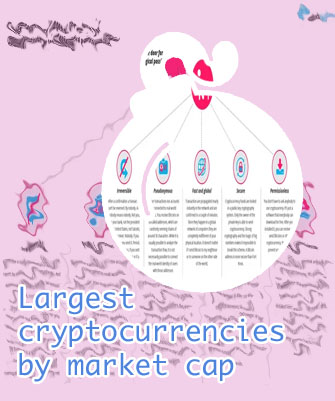
A collision is under way—not just the usual maneuvering between government and business, but a clash of radically different cultures. To crypto’s whiz-kid techno-futurists, the stodgy pencil-pushers of the Washington bureaucracy are nothing but a hindrance. To Washington’s straitlaced rule-makers, crypto’s wild, utopian promises are merely cover for dangerous fads and scams. The still-unknown potential of an ephemeral new technology has run up against the power of the state, and neither quite understands how the other works. Cryptocom market regulations A look at how countries around the world are responding and positioning themselves towards the rising cryptocurrency market.
The Draft Bill on Virtual Assets, a crypto-specific bill, passed the first stage of the legislative process, receiving 229 “yes” votes out of 340, and has two more hearings before it can become law. The bill reflects Ukraine’s legislative approach of addressing cryptocurrency specifically, including provisions such as definitions for virtual assets and ownership of virtual assets and identifying Ukraine’s Ministry of the Digital Transformation as the primary regulator for virtual assets. The bill would also impose registration and compliance requirements on cryptocurrency service providers. Source. Running Apps in Docker, Part 4: Deploy Different App Versions with Docker Compose Crypto regulation in France took a step forward in early May 2022 when crypto player Binance was granted Digital Asset Service Provider (DASP) registration, allowing it to operate its cryptocurrency exchange in France. This established France as the first major European country to give regulatory approval to a crypto exchange and forced the country’s regulators to adopt a firmer stance on the matter.

Cryptocurrencies have also given rise to a new set of challenges for governments to contend with. The anonymity and portability of cryptocurrencies make them appealing to bad actors such as criminal groups, terrorist organizations, and rogue states. There are also uncertainties about the regulatory treatment of emerging financial technologies. In addition, crypto mining can require enormous amounts of electricity, which has led to concerns about its environmental effects. Meanwhile, the rise of DeFi and crypto payments has raised questions about consumer protection, market volatility, and the ability of central banks to carry out monetary policy. Increasing moves to regulate crypto The meltdowns have spurred calls for regulation, with other major jurisdictions still drawing up their strategies. In the U.S., President Joe Biden issued an executive order in March on government oversight of cryptocurrency, including studying the impact on financial stability and national security.
No. For now, non-fungible tokens (NFTs), will be excluded as they don’t fall under existing crypto-asset categories. But the European Commission will assess the situation again within 18 months after MiCA regulation comes into force. If necessary, an additional legislative proposal will be drafted then to set up a regulatory regime specifically for NFTs. State and Local Income Tax Issues to Consider Before Making Your Next Tax Payment As a result, American consumers and advanced traders alike have been engaging with risky, offshore platforms outside the jurisdiction — and protection — of U.S. regulators. Today, more than 95% of crypto trading activity happens on overseas exchanges.